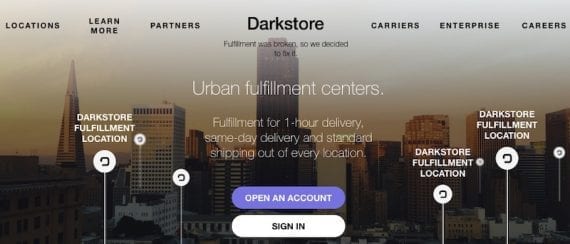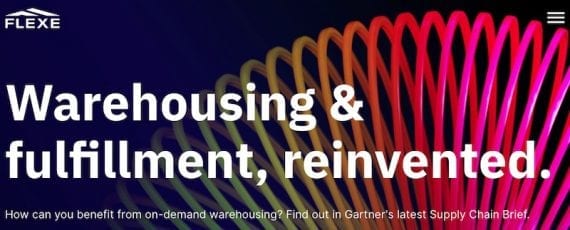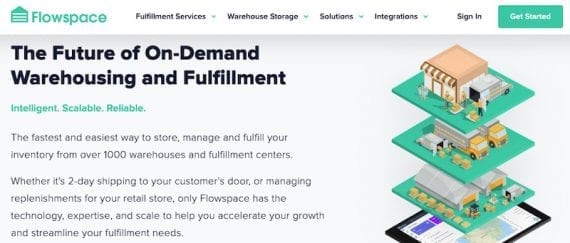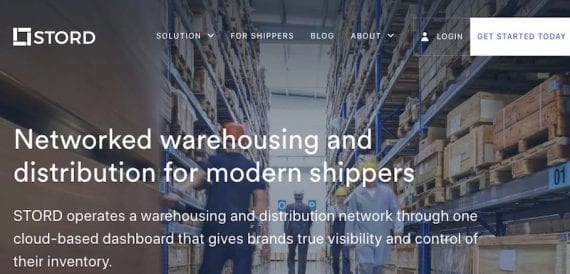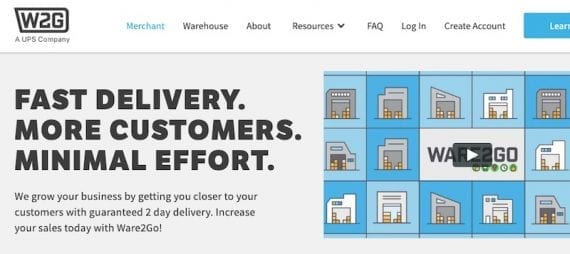On-demand warehousing and fulfillment providers act as middlemen — a kind of Airbnb for logistics. The concept lets companies with excess warehouse capacity fill their space and provides sellers with temporary or seasonal storage needs to find space without entering into a long-term contract.
Merchants search on a provider’s platform for available warehouse space in the location they want. It’s one way for ecommerce sellers to achieve faster delivery by placing inventory close to the customer.
It’s one way for ecommerce sellers to achieve faster delivery…
On-demand warehousing can be more expensive than fixed contracts, however. But it may be worth the cost. According to technology analyst firm Gartner, “Economically, on-demand warehouses typically enable users to replace the fixed costs associated with a long-term lease with short-term variable costs, enabling a more agile supply chain that can ramp up and down as demand fluctuates.”
Inventory fluctuation is a problem for all merchants. Even with sophisticated data analytics, inventory levels are more difficult to predict. If something becomes popular on Instagram, demand can quickly exceed supply.
Moreover, the coronavirus has caused shortages of hand sanitizer, masks, and toilet paper in stores and online. As manufacturers increase production to meet increased demand, merchants will have to find space to house the larger inventory. Flexible, on-demand warehousing is helpful for this.
On-demand Networks
Darkstore focuses on same-day and one-hour delivery for direct-to-consumer brands. It claims to decrease fulfillment costs from 25 percent of company revenue to three percent by leveraging the latest in robotic automation and artificial intelligence. It uses its own API and intelligent routing to reduce costs and create greater efficiencies. Darkstore has more than 600 fulfillment centers across 39 cities in the U.S. Darkstore charges for fulfillment, storage, and delivery.
—
FLEXE has a network of approximately 1,000 warehouses, representing roughly 30 million square feet. The company says its track record of finding warehouse providers that can handle the scope of clients’ needs and meet their service levels is over 90 percent. FLEXE customers include Ace Hardware, BJ’s Wholesale Club, Ralph Lauren, Staples, and Walmart.
—
Flowspace’s cloud-based fulfillment software integrates with ecommerce platforms, Amazon, Walmart’s marketplace, ShipStation, and other providers. When a customer places an order, Flowspace handles the picking, packing, and shipping. Flowspace accommodates small and large businesses and wholesalers. Flowspace’s dashboard provides real-time visibility into orders as well as data-driven insights.
—
Stord operates a network of vetted, third-party facilities (comprising a range of warehouse types) and freight routes to service retail, consumer packaged goods, manufacturing, food and beverage, medical, industrial, and telecom companies. Clients can place and manage orders through Stord’s cloud-hosted dashboard.
—
Ware2Go is owned by UPS and launched in 2018. It offers a warehousing and nationwide fulfillment network to help merchants position products closer to customers for fast and reliable delivery. Its integrated service for storage, pick, pack, and shipping is offered via a cloud-based platform. It also provides real-time tracking of shipments. Ware2Go estimates that U.S. merchants with 1- to 2-day delivery needs will need to hold inventory in three warehouses.

